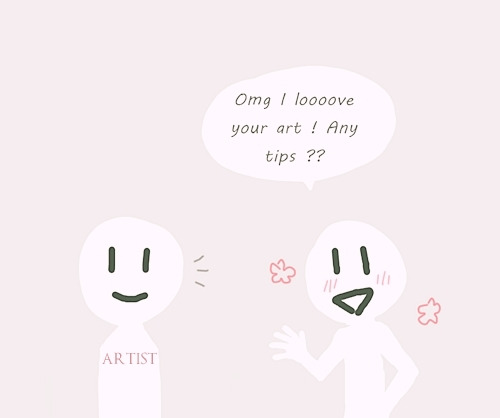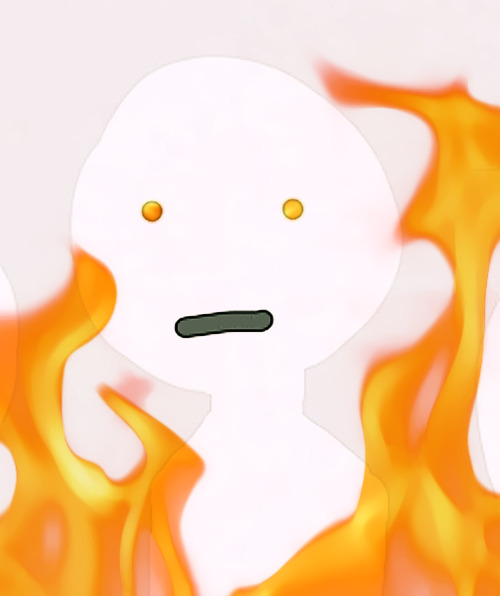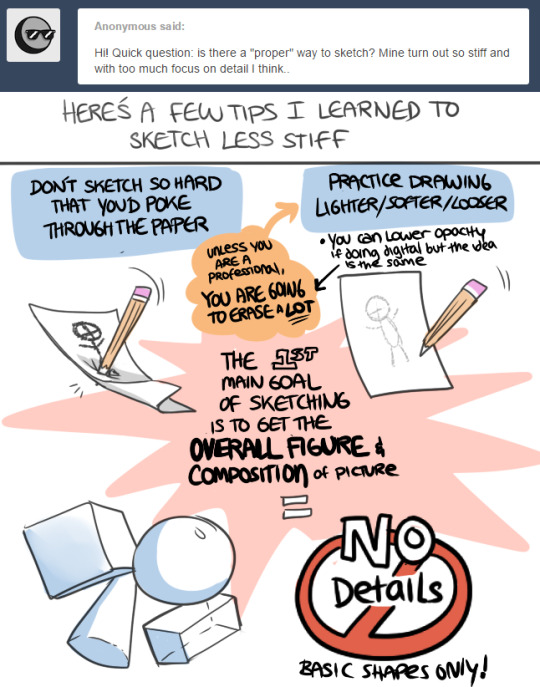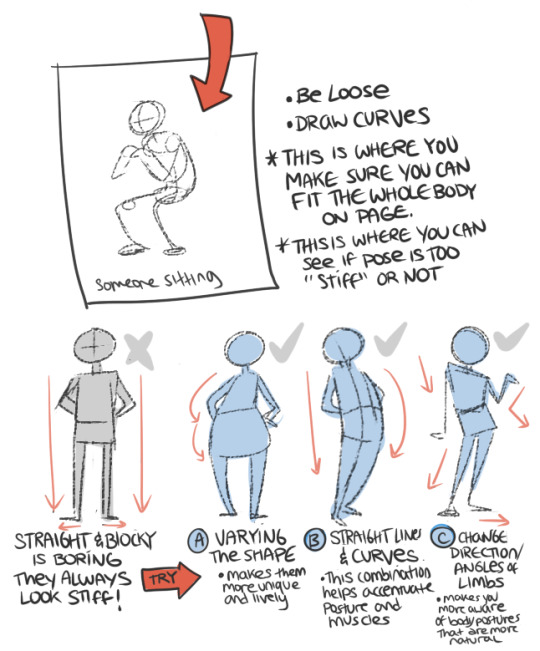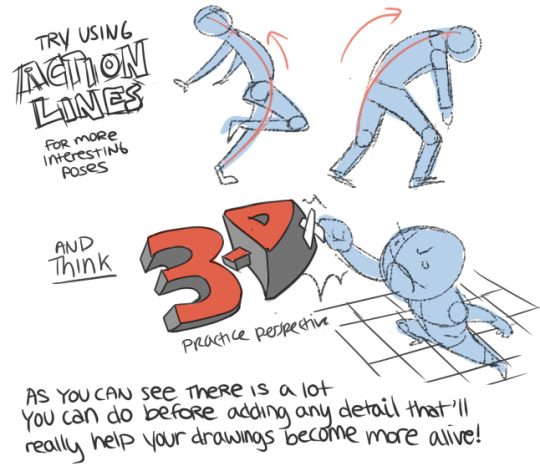Text
"comes back wrong", what a hot trope. incredibly sexy.
79K notes
·
View notes
Photo

We’ve written about which characters should die and when to kill them in your stories. In this post, we discuss how to write the death scene.
Before you decide to kill characters, we suggest you read: Getting Away With Murder: A 5-Point Plan On How To Kill A Character. If you decide you’re still going ahead, then you need to know how to write the death scene.
How To Write The Death Scene
37 notes
·
View notes
Photo
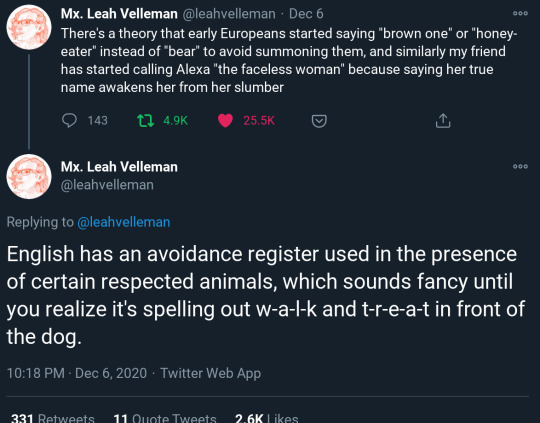
There’s a theory that early Europeans started saying “brown one” or “honey-eater” instead of “bear” to avoid summoning them, and similarly my friend has started calling Alexa “the faceless woman” because saying her true name awakens her from her slumber
English has an avoidance register used in the presence of certain respected animals, which sounds fancy until you realize it’s spelling out w-a-l-k and t-r-e-a-t in front of the dog.
Mx. Leah Velleman on twitter
111K notes
·
View notes
Text
important for AO3 writers
So a while ago I asked staff at AO3 why it was that I could post a work, update it with chapters, and have it appear no higher than tenth, ever, even with new chapters, on a busy fandom.
I finally got an explanation.
“If, however, your work is appearing below works that were already visible, it’s possible you’re running into an issue that occurs when a work is posted between 12:00 AM and 5 AM UTC - works posted during this time frame cause the system to believe the work has had a posting date set manually. (Normally you would do this by ticking “Set a different publication date” in the posting form.) This also applies to works that were initially saved as a draft on a date previous to the day they are posted. Works that have been backdated are assigned a default time of day, which may be earlier than the actual time you posted the work.”
So don’t post during that time. It just HAPPENS to be between 5 pm and 10 pm Pacific time so posting things after dinner is RIGHT OUT if you happen to live on the west coast of the US. That’s between 8 pm and 1 am east coast time.
So until they fix this (and it’s been going on a LONG time, they’re working on it but it’s a massive code overhaul, apparently) I’ll be posting fics OTHER times.
This means if you’re posting a long, multichapter work, posting the first chapter in the evening can screw up the entire rest of your posting. Posting a draft before posting for reals will also keep you from being at the top of the list.
And this probably explains why some of my fics have done better than others.
What does this look like? Someone posts at, say, 4 in the afternoon my time. I come along and post around 8 pm, which is pretty typical for me, but it gets marked as “set manually” and given a time much earlier in the day, and thus appears behind everything posted that day. So it’s never on top, people start reading down the list, think they’ve seen everything that’s at the top, and don’t poke any farther.
So for writers, DO NOT POST BETWEEN 12:00 AM and 5 AM UTC. Google will translate, just plug in 12 am UTC and it will pop up your local time in most places.
For readers, realize this exists and that you’re probably missing something. Scroll back if it’s between those hours, and after those hours.
And at some point they’ll fix this to something less arcane.
17K notes
·
View notes
Text
“first. he touches you and you light on fire. your wrist blazes where his fingers meet your skin. the burns don’t show, but it’s hard to breathe with ash in your lungs. it’s so hard to breathe. you’re suffocating daily. second. it hurts to watch him. he shines. he’s brighter than the sun, he’s too beautiful for your eyes. it’s hard to look at him. it’s even harder to look away from him. you’re going blind. third. your ears are tuned to his voice. you could pick him out in a sea of thousands. his voice makes pretty singers who sing pretty songs sound dull. his voice makes everything else sound ugly. fourth. the color of his eyes is blue enough to drown in. he is turning you into a clichéd love-wrecked being. you’re drowning, always sinking. down, down, down. fifth. you know him. you love him. through a thousand lifetimes, across millions of stars, you’d find him, you’d never leave him. you love him, till death do you part. ( sixth. he loves you, too. )”
— five things you know and the one thing you don’t. 19/09/14 (via eposetties)
27K notes
·
View notes
Note
I have problems finding different "voices" for each of my characters. Could you help me by maybe explain the different aspect that can change one's voice? Thank you!
Hi, love! Thanks for your question and your patience :) I love writing unique character voices, both in dialogue and narration, just because it can make a story completely different just through the way it’s told. There are a lot of different aspects to a character voice, though, so I’ll just go through the basics I run in my mind when I develop voices.
Aspects of Character Voice
Education – To be as realistic for your character as possible, you need to consider the level of education they received growing up. There are too many characters in modern fiction who speak eloquently, confidently, and grammatically correct, yet don’t have the educational backstory to support this. This is especially important if the character has to speak publicly, which many overlook as a skill that must be developed.
Influences – People learn how to speak, how to joke, and how to appeal to others from their family, friends, and idols. For example: my aunt is much more reserved than my father and uncle. She’s a quiet, thoughtful psychologist – but every once in a while, she shows her roots over her education by engaging in some of the awful puns that run in my dad’s side of the family. Puns seem uncharacteristic of her at first glance, but it adds depth to who she is by reaching back into her childhood.
Communication Style – I touched on this in my post on character traits, and it probably applies even more here. Your characters aren’t all going to speak up at the same times, about the same things, in the same ways. Some people avoid confrontation; some people can’t ignore irritants. Some people are open about their personal affairs; some don’t feel comfortable sharing their middle name with friends. Some people think out loud, and occupy the room subconsciously. Some people use humor to mask their feelings, and rarely speak without a hint of irony in their voice. Some people are horribly self-aware, and some people talk without really hearing or filtering themselves. It’s all important.
Demeanor – Mood, countenance, disposition – basically, what is the character’s general attitude? If someone were to describe them in a couple of words, what would they be? Some people are generally positive, and some are generally negative, or irritable, or uncomfortable, or emotional, or just really strong in whatever direction. I had a friend in theatre describe me as “anxious at rest”, and I think that pretty much covers my demeanor. Now, no one behaves one way all the time – this is just more of a “default emotion” that colors how they approach certain situations.
Example: Because I’m “anxious at rest”, I feel happiness like butterflies in my limbs, and sadness like it’s raining bullets in my stomach. Because my brother is naturally chill as hell (my words), he feels happiness like a warm, gooey piece of pie, and sadness like a thin, wet sheet clinging to his skin.
Social Skills – This can tie into education and influences, but also has a lot to do with personality. A character can be raised to know and value social convention, or they can pick it up themselves; or they can disregard social “rules” despite any kind of education. How does your character handle awkward situations? Are they blunt with strangers? Are they respectful to authority? Do they keep their opinions to themselves, or speak up no matter what? Do they at all change themselves or their behavior to adapt to new situations? There’s a spectrum there, between 100%-Integrity and Chameleon status, and your character’s somewhere on it.
Sense of Humor – I’ve talked about this before, too, but for posterity, I’ll add it here. When writing a character’s voice, you have to think about what amuses them – and it’s not necessarily what amuses you. I think of the show The Office, which is basically a playground of different senses of humor. There’s Michael Scott, who works with things like “that’s what she said” and celebrity impressions; there’s Jim Halpert, who’s both sarcastic and a diehard prankster; there’s Pam Beesly, who can only offer puns along the line of, “I’ll put out an A.P.B. – an Ask Pam Beesly.” These small details make characters sound distinct from each other.
Introversion/Extroversion – Lastly, a lot of how a character communicates depends on how they experience social interactions. Are they energized by conversations and social events, or do these things drain them? Do they seek out others, or do they wait to be addressed? Are their thoughts focused outwardly – on what’s going on around them, what others are saying or thinking, on how they appear to others – or inwardly – on their internal thoughts and interests, on what they’re thinking and feeling? This will affect how they speak and how they narrate the story, even if you’re not writing in first-person.
Anyway, that’s basically what came to mind when I saw your question. If this doesn’t help you, be sure to send us another ask with more information :) Good luck!
– Mod Joanna ♥️
If you need advice on general writing or fanfiction, you should maybe ask us!
5K notes
·
View notes
Photo

140 Words To Describe Mood In Fiction
Writers Write creates writing resources and shares writing tips. In this post, we explain mood, with examples, and give you 140 words to describe mood in fiction.
What Is Mood In Fiction?
How readers feel after reading a book or a short story, or after watching a film, is known as the mood in fiction.
Writers use tone to establish a mood in a work of fiction.
While tone is often said to be what the author feels, what the reader feels is known as the mood. This mood affects readers psychologically and emotionally.
[Suggested reading: 155 Words To Describe An Author’s Tone]
How Is A Mood Created?
There are basically five things that allow authors to create a mood…
Read More
103 notes
·
View notes
Text
Helpful things for action writers to remember
Sticking a landing will royally fuck up your joints and possibly shatter your ankles, depending on how high you’re jumping/falling from. There’s a very good reason free-runners dive and roll.
Hand-to-hand fights usually only last a matter of seconds, sometimes a few minutes. It’s exhausting work and unless you have a lot of training and history with hand-to-hand combat, you’re going to tire out really fast.
Arrows are very effective and you can’t just yank them out without doing a lot of damage. Most of the time the head of the arrow will break off inside the body if you try pulling it out, and arrows are built to pierce deep. An arrow wound demands medical attention.
Throwing your opponent across the room is really not all that smart. You’re giving them the chance to get up and run away. Unless you’re trying to put distance between you so you can shoot them or something, don’t throw them.
Everyone has something called a “flinch response” when they fight. This is pretty much the brain’s way of telling you “get the fuck out of here or we’re gonna die.” Experienced fighters have trained to suppress this. Think about how long your character has been fighting. A character in a fist fight for the first time is going to take a few hits before their survival instinct kicks in and they start hitting back. A character in a fist fight for the eighth time that week is going to respond a little differently.
ADRENALINE WORKS AGAINST YOU WHEN YOU FIGHT. THIS IS IMPORTANT. A lot of times people think that adrenaline will kick in and give you some badass fighting skills, but it’s actually the opposite. Adrenaline is what tires you out in a battle and it also affects the fighter’s efficacy - meaning it makes them shaky and inaccurate, and overall they lose about 60% of their fighting skill because their brain is focusing on not dying. Adrenaline keeps you alive, it doesn’t give you the skill to pull off a perfect roundhouse kick to the opponent’s face.
Swords WILL bend or break if you hit something hard enough. They also dull easily and take a lot of maintenance. In reality, someone who fights with a sword would have to have to repair or replace it constantly.
Fights get messy. There’s blood and sweat everywhere, and that will make it hard to hold your weapon or get a good grip on someone.
A serious battle also smells horrible. There’s lots of sweat, but also the smell of urine and feces. After someone dies, their bowels and bladder empty. There might also be some questionable things on the ground which can be very psychologically traumatizing. Remember to think about all of the character’s senses when they’re in a fight. Everything WILL affect them in some way.
If your sword is sharpened down to a fine edge, the rest of the blade can’t go through the cut you make. You’ll just end up putting a tiny, shallow scratch in the surface of whatever you strike, and you could probably break your sword.
ARCHERS ARE STRONG TOO. Have you ever drawn a bow? It takes a lot of strength, especially when you’re shooting a bow with a higher draw weight. Draw weight basically means “the amount of force you have to use to pull this sucker back enough to fire it.” To give you an idea of how that works, here’s a helpful link to tell you about finding bow sizes and draw weights for your characters. (CLICK ME)
If an archer has to use a bow they’re not used to, it will probably throw them off a little until they’ve done a few practice shots with it and figured out its draw weight and stability.
People bleed. If they get punched in the face, they’ll probably get a bloody nose. If they get stabbed or cut somehow, they’ll bleed accordingly. And if they’ve been fighting for a while, they’ve got a LOT of blood rushing around to provide them with oxygen. They’re going to bleed a lot.
Here’s a link to a chart to show you how much blood a person can lose without dying. (CLICK ME)
If you want a more in-depth medical chart, try this one. (CLICK ME)
Hopefully this helps someone out there. If you reblog, feel free to add more tips for writers or correct anything I’ve gotten wrong here.
245K notes
·
View notes
Text
what’s your nervous tick? i rub the back of my left ear with my right hand
32K notes
·
View notes
Text
Some words to use when writing things:
winking
clenching
pulsing
fluttering
contracting
twitching
sucking
quivering
pulsating
throbbing
beating
thumping
thudding
pounding
humming
palpitate
vibrate
grinding
crushing
hammering
lashing
knocking
driving
thrusting
pushing
force
injecting
filling
dilate
stretching
lingering
expanding
bouncing
reaming
elongate
enlarge
unfolding
yielding
sternly
firmly
tightly
harshly
thoroughly
consistently
precision
accuracy
carefully
demanding
strictly
restriction
meticulously
scrupulously
rigorously
rim
edge
lip
circle
band
encircling
enclosing
surrounding
piercing
curl
lock
twist
coil
spiral
whorl
dip
wet
soak
madly
wildly
noisily
rowdily
rambunctiously
decadent
degenerate
immoral
indulgent
accept
take
invite
nook
indentation
niche
depression
indent
depress
delay
tossing
writhing
flailing
squirming
rolling
wriggling
wiggling
thrashing
struggling
grappling
striving
straining
1M notes
·
View notes
Text
one of the best pieces of writing advice i’ve ever gotten:
if a scene isn’t working, change the weather.
it sounds stupid, but seriously, it works. thank u to my screenwriting professor for this wisdom
30K notes
·
View notes
Text
Trying to find the perfect name for a character, but you only have a vague idea of what you want, like “he feels like a 2-syllable kind of guy” or “It need a hard consonant at the end.”
129K notes
·
View notes
Photo



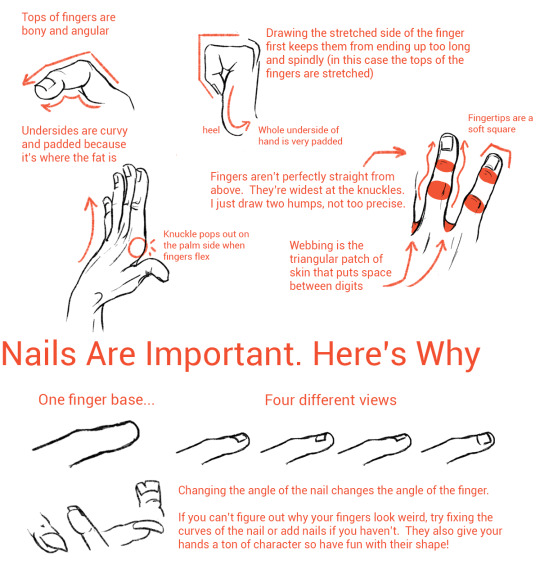
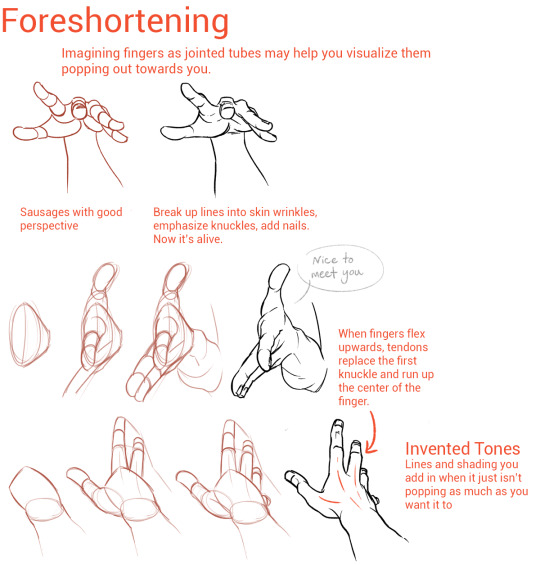
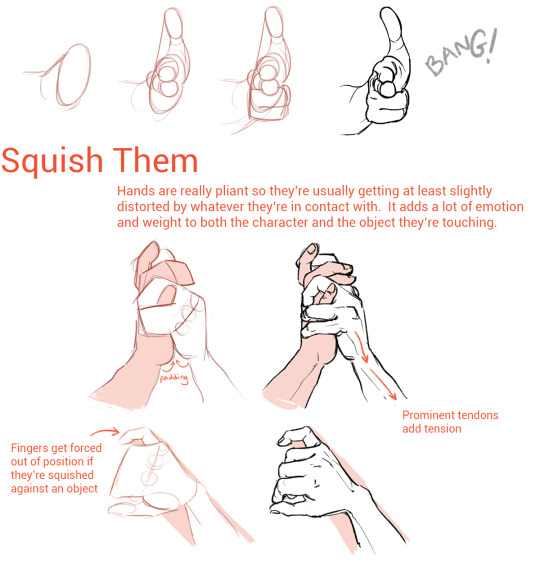
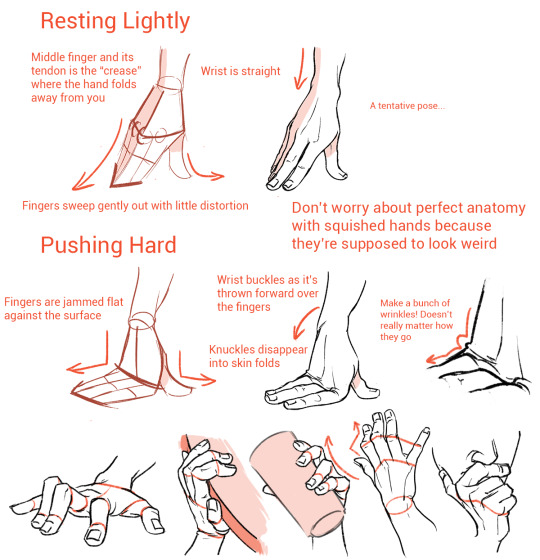
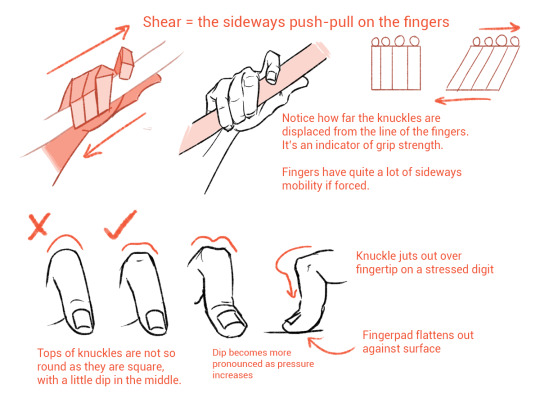
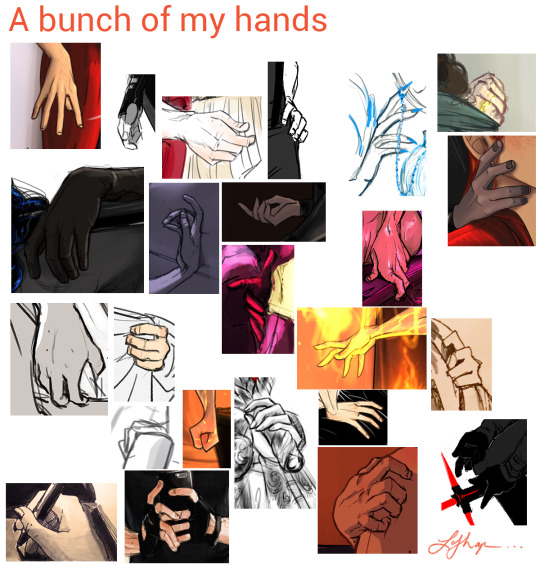
I’m not an expert but I like hands a lot so hopefully some of this was helpful!
224K notes
·
View notes
Text
ironic how being empty can feel so fucking heavy
133K notes
·
View notes
Photo

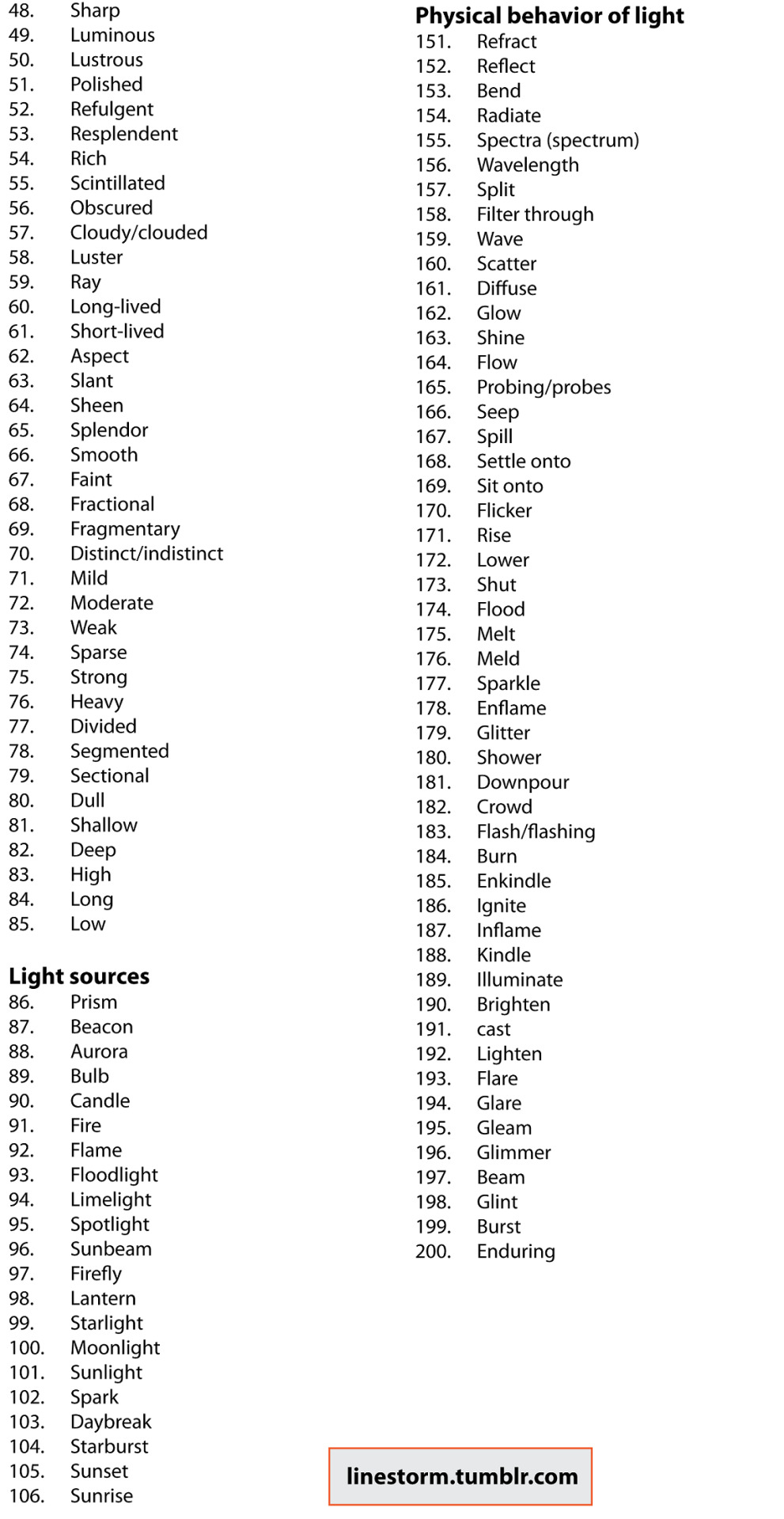
200 words that describe light
50K notes
·
View notes
